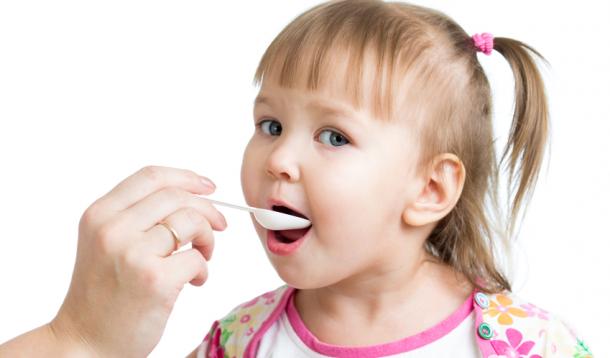
It's 5:00pm and you have to get your son to soccer by 5:45pm. You're rushing to get food on the table and trying to get your kids ready and fed in 20 minutes so that you can get out the door on time. Every minute is accounted for. And then, after plating your kids' food (and as you start to scarf your own meal down), you peek over at your toddler who is casually poking and playing with her food, maybe picking away at the dinner roll or piece of bread only. You remind her to eat quickly because you don't have much time. Again. And again.
You're trying to keep your calm.
You want her to eat something nutritious and you can't waste another minute, so you pick up her spoon, turn your chair around and start feeding her. Spoonful by spoonful. It's just easier, right?
Maybe, yes.
But it also creates a painfully-hard-to-break habit that doesn't lend itself to growing independence, self-regulation or mindfulness when it comes to eating.
When well-intentioned parents regularly spoon-feed their toddlers or young kids regularly, it translates into one or more of these messages in the child's mind:
"You aren't capable of feeding yourself"
"You aren't eating fast enough"
"You aren't eating enough"
We all have the goal of raising healthy, confident eaters, and we want our kids to feel capable at the table, be able to choose from the foods provided and be able to pace themselves independently. We also want them to develop the fine-motor skills necessary to eat on their own.
We want their inner dialogue to be:
" I can feed myself at meals, with my own utensils"
"I know how much food my body needs, and I'll eat until my tummy feels satisfied"
"I know that I have __ much time to eat my meal, so I'll pace myself according to that"
Sounds pretty great, right? So how do you get there?!
The first step is to wean your child off of being fed and encourage self-feeding. Patiently show your toddler how to properly hold her kid-friendly fork and spoon (and even give her a plastic knife and show her how to cut her food!) and guide her on how to gather food and bring it to her mouth. If your child is used to being spoon-fed, this is going to take some time, patience and consistency. It might take her longer to eat at first (and it might be messy!) but that's ok. Babies as young as nine to 12 months can start feeding themselves with utensils, and by 24 months, should be using them independently. In fact, at six months of age, babies are ready to self-feed soft finger foods!
Try to have meals on the table a bit sooner, so that you have at least 20-30 minutes to comfortably eat, deal with inevitable spills and messes, and spend time with your child, teaching him or her how to self-feed. When you feel rushed or stressed, you will be more tempted to spoon-feed your child, you'll be less patient and attentive, and your child will feel rushed and anxious as well. Allowing enough time for meals takes the pressure off of everyone, and allows for a more enjoyable, relaxed meal. It also gives kids an opportunity to learn how to be more mindful and "listen to their tummies" so that they can decide when they've had enough.
Part of learning how to be an independent eater is learning how to self-regulate (how fast or slow to eat, and how much to eat at any given time). Give your kids a time limit for meals (about 20-30 minutes) and snacks (10-20 minutes) so that they are able to learn how to pace themselves. If you've been spoon-feeding because you have a slow eater, try setting a timer. Give two to three warnings ("there is 10 minutes left to eat your dinner!"..."there is 5 minutes left"). This will take some time for your child to get used to, but he will learn eventually that mealtimes aren't a two-hour ordeal. Otherwise, your child won't have a chance to build up hunger for the next meal or snack, and he or she won't know what comfortable fullness feels like either. Setting time limits at meals helps kids learn how to self-regulate.
Did you like this? If you did, visit my Facebook Page where I post similar articles, lots of free tips and yummy recipes for parents daily.